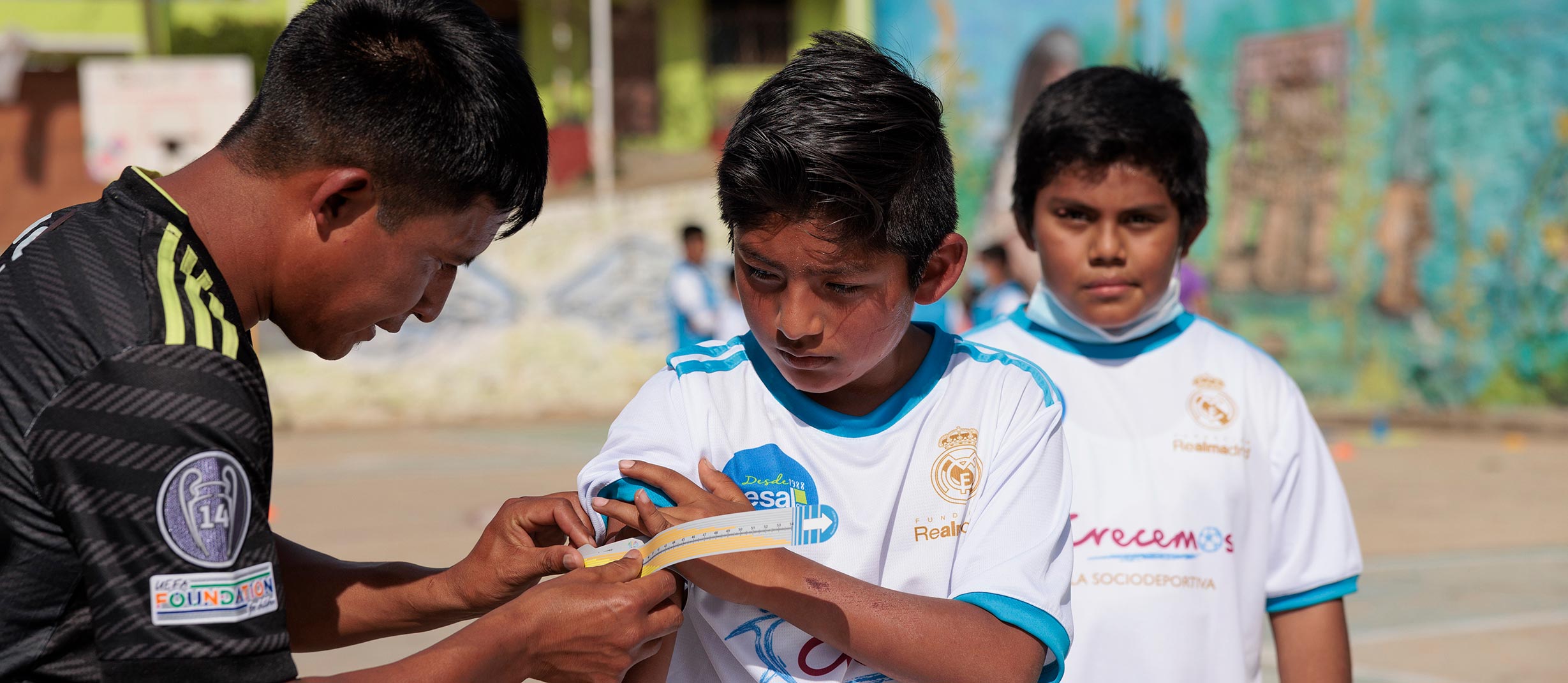Connecting to a Network of Half a Million
To further identify and support early intervention in the nutritional challenges of even more children, Children's Mercy Kansas City connected with the Abbott Nutrition Health Institute (ANHI). ANHI creates educational programming and other evidence-based tools to enhance health outcomes. It's also connected to a network of half a million healthcare professionals worldwide. This network allows ANHI to serve as an education and awareness-building partner for the MUAC z-score tape.
"Abbott is committed to helping raise awareness of pediatric malnutrition through education about the importance of early identification and intervention," said Karyn Wulf, M.D., MPH, a senior medical director at Abbott. "Through this partnership with Children's Mercy Kansas City and Dr. Abdel-Rahman, we can connect clinicians around the world to this simple but effective malnutrition identification tool to help accomplish that goal."
Building upon this partnership, Abbott recognized an opportunity to not just distribute the tool but also to train clinicians to use it. Through one of Abbott's educational training programs, the ANHI Growth Summit, Dr. Abdel-Rahman showed 150 pediatricians, dietitians and clinicians from more than 20 countries around the world how to use this simple and effective malnutrition screening tool.
With the help of ANHI and its connections, the team has been able to further expand the reach of the MUAC z-score tape. ANHI offers MUAC z-score tape training materials and an accredited self-study course, free of cost, as well as access to the MUAC z-score tape. More than 9,292 clinicians have accessed ANHI's MUAC z-score tape educational resources so far.
With its global reach and impact on childhood nutrition and health, the MUAC z-score tape was recognized among Fast Company's World Changing Ideas in Wellness and Developing Nation Technologies for 2021.
Supporting Malnutrition Screening and Education
Of course, to beat malnutrition, you first have to find it. That's where the Real Madrid Foundation comes in. Understanding that malnutrition screening is the first step on the path to care, Abbott and the Real Madrid Foundation launched a global nutrition screening program using MUAC z-score tape to aid the early identification of children at risk for malnutrition. Local Real Madrid Foundation partners are supporting this grassroots approach in different regions around the world.
In the hands of the community, the MUAC z-score tape is an example of an effective screening tool that can help families understand their children's nutritional status and encourage them to start conversations with healthcare providers if needed.
To further support prevention, this partnership implemented Future Well Kids, a health and nutrition curriculum created by the Abbott Fund, in nine countries: Brazil, Colombia, Kenya, India, Israel, Mexico, Spain, the United Kingdom and the United States. This initiative has delivered 15,000 hours of curriculum to teach children about the relationship between what they eat and chronic illnesses, such as diabetes and cardiovascular disease. This education lays the foundation for helping children make healthy lifestyle choices that can help reduce their risk of chronic disease later in life.
The partnership between Abbott and Real Madrid Foundation illustrates the power of Abbott’s work under the Abbott Center for Malnutrition Solutions, a collaboration between Abbott and external partners focused on reducing malnutrition in every region of the world.
Establishing Strong Partnerships for Health Equity
Abbott’s unique partnership with the Real Madrid Foundation, Children's Mercy Kansas City, Hallmark and Children International are great examples of how distinct organizations can leverage their areas of expertise and resources to move toward stronger health equity, providing global scale and reach for the early identification of childhood malnutrition:
- Dr. Abdel-Rahman, previously at Children's Mercy Kansas City, conceived of and developed the MUAC z-score tape.
- Hallmark conducted research, tested the paper-based tool and developed manufacturing recommendations.
- Children International piloted the tape outside of the U.S. in Guatemala and India and demonstrated the tool's effectiveness to support hard-to-reach communities outside of hospital settings. Now, it's scaling the tape for communities and caregivers to use across nine countries.
- Abbott Nutrition Health Institute tapped its network of half a million healthcare providers to increase awareness and provide educational training on the tool.
- The Real Madrid Foundation partnered with Abbott to implement nutrition education and screening programs in its social sports projects in nine countries to further support malnutrition prevention and care.
A single innovation won't solve childhood malnutrition. It will require global, multisectoral partnerships to create more world-changing ideas like the MUAC z-score tape. Abbott's goal is to help more families, healthcare professionals and communities around the world access the tools and resources they need to improve health and well-being.




Social Share